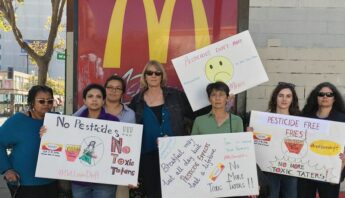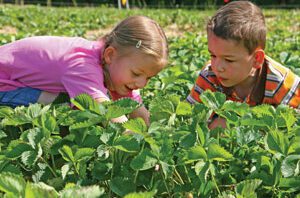In a new report and policy statement released yesterday, the American Academy of Pediatrics (AAP) highlighted the harmful effects of pesticides on children, and urged government action.
AAP points to the growing body of scientific evidence linking pesticide exposure to children's health harms, focusing in on harms to the developing nervous system and increased risk of some childhood cancers. The pediatrician group’s findings and recommendations are similar to those highlighted by PAN's A Generation in Jeopardy report released last month.
In particular, both reports urge policymakers to reduce children’s exposure to pesticides, including protecting children where they live, learn, and play, and investing in farmers who pursue less toxic pesticide alternatives.
In response to AAP's report, Emily Marquez, PhD, a staff scientist and endocrinologist at PAN and co-author of A Generation in Jeopardy, said:
Over the past five years, the body of evidence linking pesticide exposure and childhood health harms is growing quickly and becoming increasingly strong. And as the new AAP report suggests, evidence of pesticides harming the brain and nervous system, and links to certain childhood cancers, are particularly concerning.
Children are also uniquely vulnerable to the impacts of pesticides. Environments we’d like to consider "safe" — from the womb to the classroom to the kitchen table — often bring children into contact with harmful pesticides. Quickly growing bodies take in more of everything. An infant takes in about 15 times more water than an adult per pound of body weight, and up to age 12, a child inhales roughly twice as much air.
Individual household choices can help, both by reducing exposure to insecticides in the home and choosing foods without pesticide residues. But both the AAP and PAN reports note that protecting kids from the health harms of pesticides requires real policy change. Policymakers are encouraged to respond to the "silent pandemic" of learning disabilities and disorders by taking swift action at the local, state and federal levels.
Citing AAP’s research, PAN urges policymakers to:
- Prevent the pesticide industry from selling agricultural products that can harm children’s health;
- Protect children where they live learn and play; and
- Invest in farmers stepping off the pesticide treadmill.
It’s time to make a solid start for our children a national priority.







